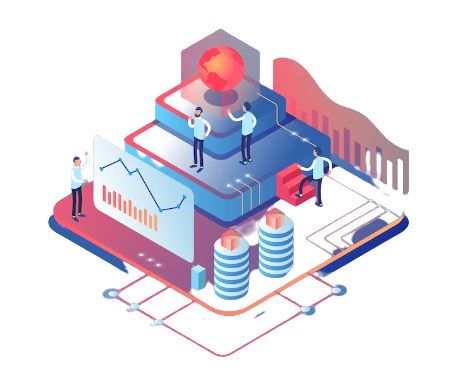One of the most significant impacts of big data on business innovation is the ability to create personalized experiences for customers. By analyzing customer data, businesses can gain insights into their preferences, buying behavior, and needs.
In today’s digital age, big data is a buzzword that has taken the business world by storm. Big data refers to large and complex data sets that traditional data processing tools cannot handle. With the rise of big data, businesses have access to more information than ever before. The challenge lies in using this information to drive business innovation. In this blog post, we will explore the impact of big data on business innovation, the opportunities it presents, and the challenges businesses face.
The Impact of Big Data on Business Innovation
Big data has the potential to transform the way businesses operate. By collecting and analyzing vast amounts of data, businesses can gain insights into consumer behavior, market trends, and operational inefficiencies. This information can then be used to drive innovation, increase efficiency, and improve customer experiences.
One of the most significant impacts of big data on business innovation is the ability to create personalized experiences for customers. By analyzing customer data, businesses can gain insights into their preferences, buying behavior, and needs. This information can then be used to tailor products, services, and marketing messages to meet the unique needs of each customer.

Big data can also be used to identify operational inefficiencies within a business. By analyzing data from various departments, businesses can identify areas that need improvement, such as supply chain management, production processes, and customer service. This information can then be used to optimize operations, increase efficiency, and reduce costs.
Opportunities of Big Data on Business Innovation
-
Improved Customer Insights
One of the most significant opportunities of big data for business innovation is improved customer insights. Big data analytics can help businesses collect and analyze customer data from various sources, such as social media, website interactions, and sales data. By analyzing this data, businesses can gain valuable insights into their customers’ preferences, behaviors, and needs. This information can help businesses create products and services that cater to their customers ‘ needs, thus improving customer satisfaction and retention.
-
Better Decision-Making
Big data analytics can also help businesses to make better decisions. By analyzing large amounts of data, businesses can identify patterns, trends, and insights that may not be visible through traditional methods. This information can help businesses to make more informed decisions, reduce risks, and improve their overall performance.
-
Process Optimization
Another opportunity of big data for business innovation is process optimization. By analyzing large amounts of data, businesses can identify inefficiencies in their processes and make necessary changes to optimize their operations. This can help businesses to reduce costs, improve efficiency, and increase productivity.
-
New Product and Service Development
Big data analytics can also help businesses to develop new products and services. By analyzing customer data, businesses can identify gaps in the market and create new products and services that cater to their customers’ needs. This can help businesses to stay competitive and attract new customers.
Challenges of Big Data on Business Innovation
-
Data Privacy and Security
One of the significant challenges of big data on business innovation is data privacy and security. As businesses collect and store large amounts of customer data, they need to ensure that the data is secure and protected from unauthorized access. This is particularly important given the increasing number of data breaches and cyber-attacks.
-
Lack of Skilled Professionals
Another challenge of big data on business innovation is the lack of skilled professionals. Big data analytics requires specialized skills and knowledge, which can be challenging to find in today’s competitive job market. Businesses need to invest in training and development programs to ensure that their employees have the necessary skills to analyze and interpret large amounts of data.
-
Integration with Legacy Systems
Many businesses still use legacy systems, which can be challenging to integrate with big data analytics platforms. This can result in delays, errors, and inaccuracies in data analysis, which can impact business performance.
-
Cost
Big data analytics can be costly, particularly for small and medium-sized businesses. The cost of implementing and maintaining big data analytics platforms can be a significant barrier to entry for some businesses.
Conclusion
In conclusion, big data analytics presents significant opportunities for businesses to innovate and improve their performance. By analyzing large amounts of data, businesses can gain valuable insights into their customers, make better decisions, optimize their processes, and develop new products and services. However, there are several challenges associated with big data that businesses need to overcome, including data privacy and security, the lack of skilled professionals, integration with legacy systems, and cost. Businesses need to carefully consider these challenges and develop strategies to address them to realize the full potential of big data on business innovation.
Unlock the potential of big data with Tanbits. Our big data services empower businesses to harness valuable insights, optimize processes, and drive innovation through data-driven decision-making.











